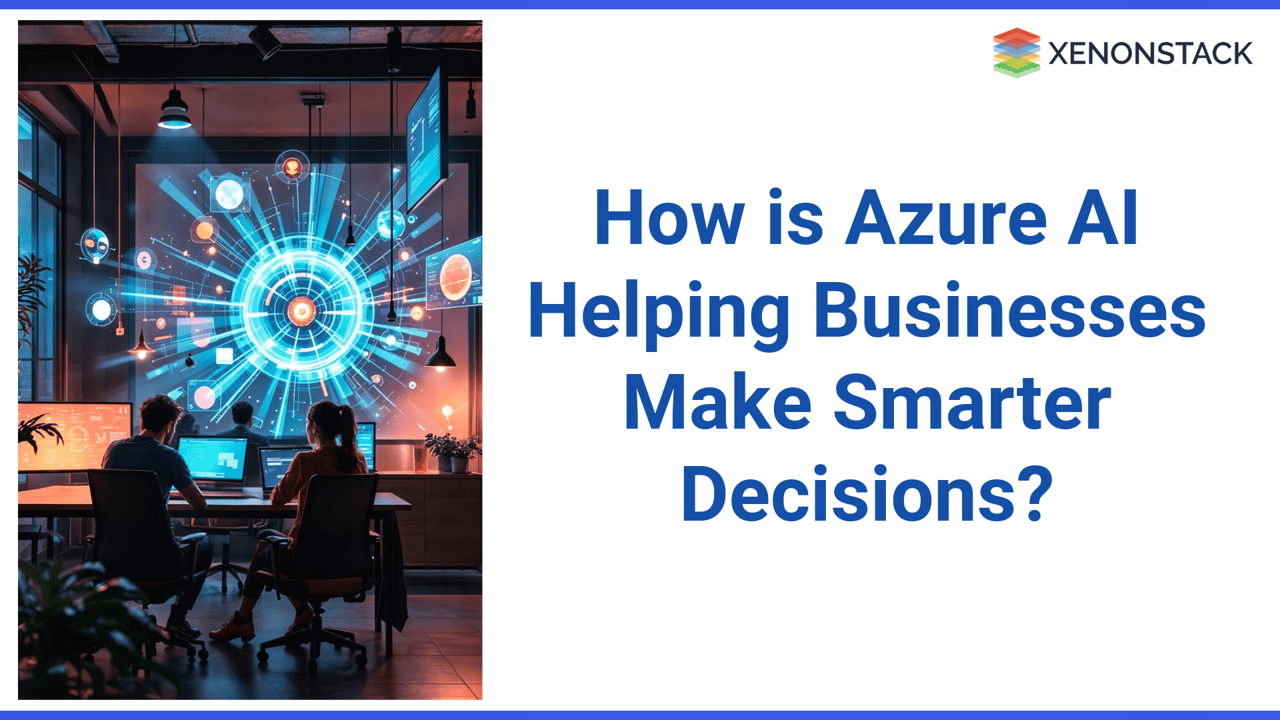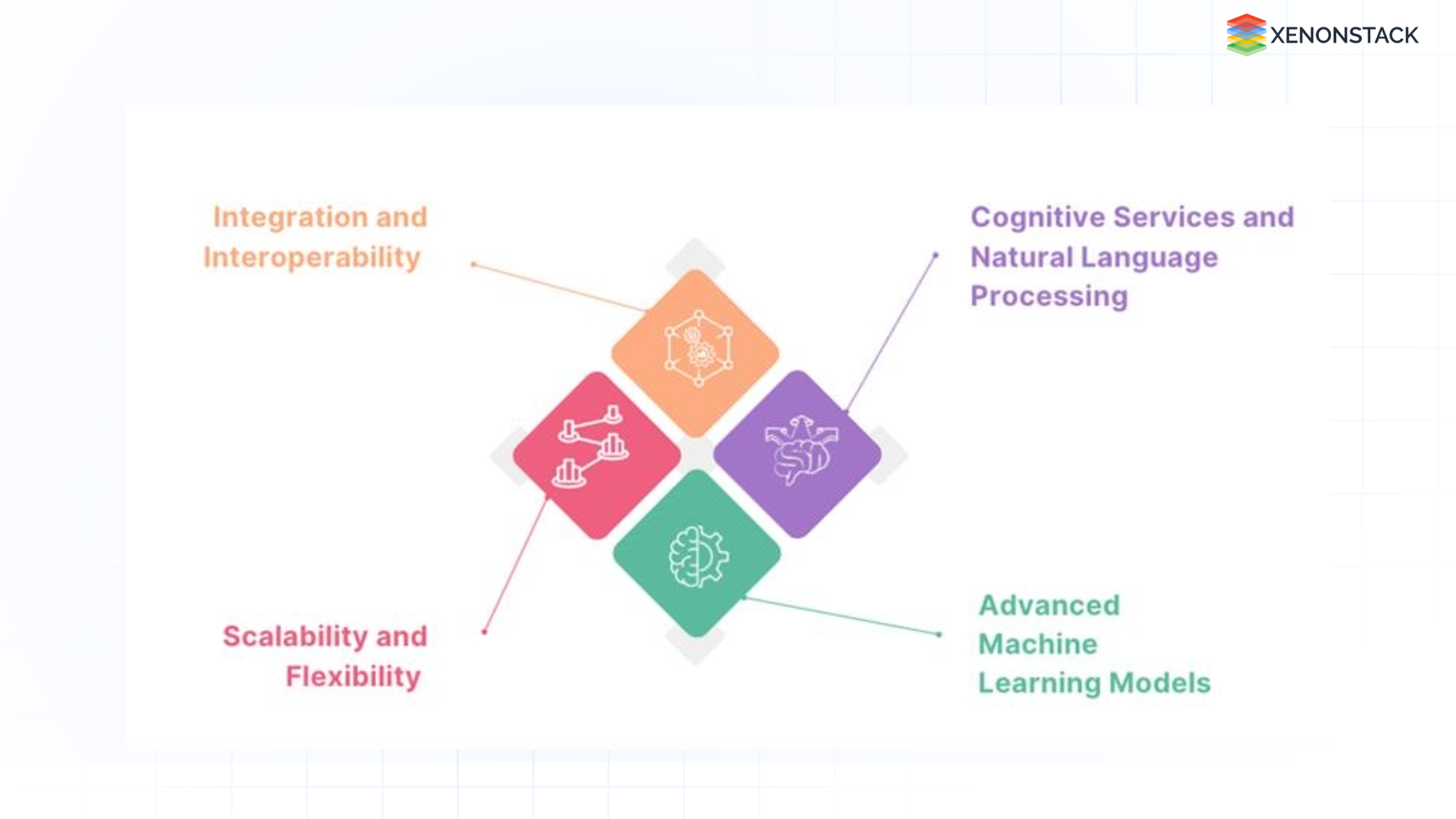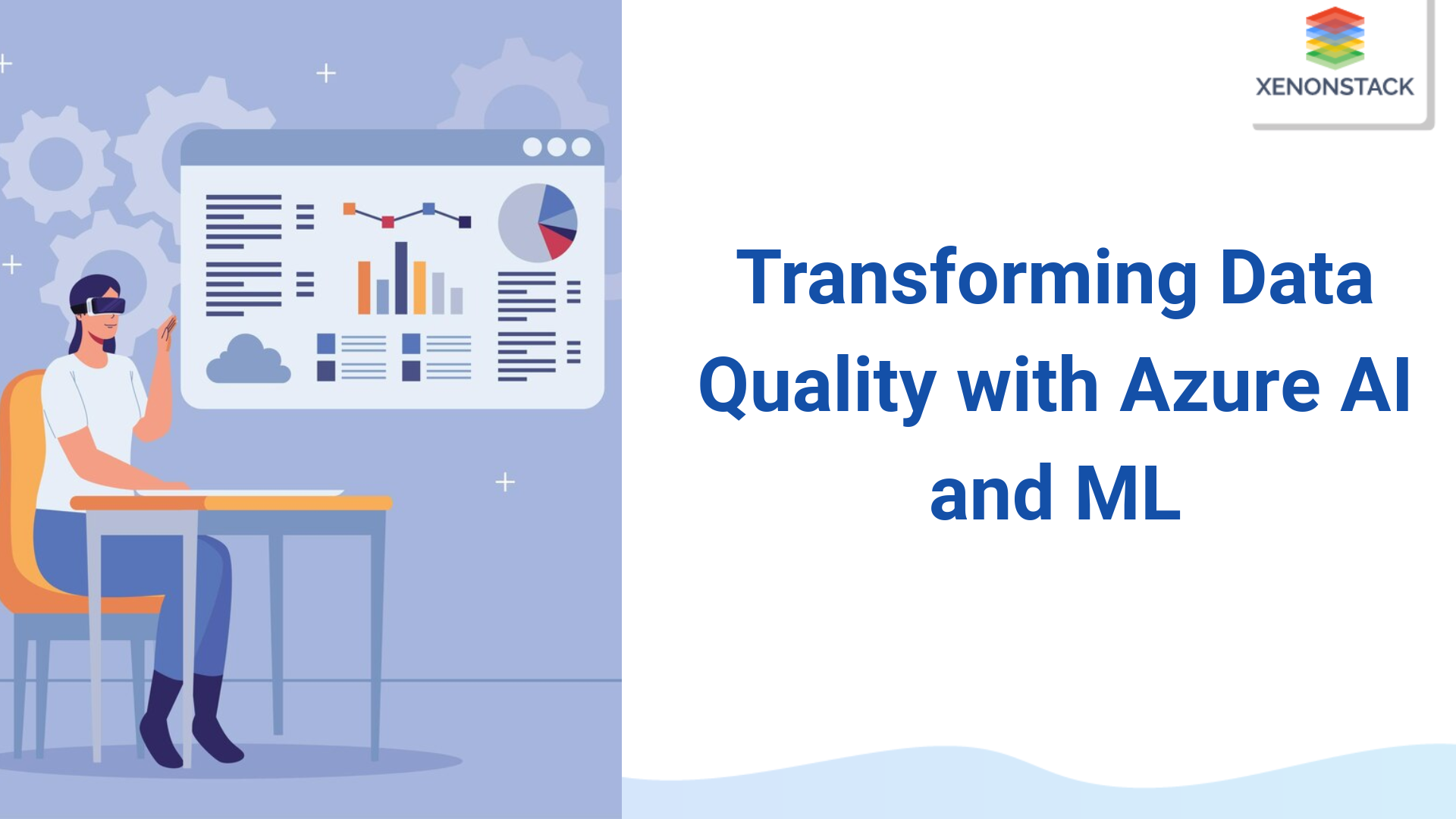
Azure AI transforms how businesses approach decision-making by providing the tools and capabilities to extract valuable insights from their data. By harnessing the power of machine learning, natural language processing, and predictive analytics, Azure AI enables organizations to make smarter, more data-driven decisions that can lead to improved efficiency, increased profitability, and enhanced customer experiences.
This blog will explore how Azure AI empowers businesses across various industries to make better decisions. We will delve into real-world examples and case studies that demonstrate the practical applications of Azure AI in decision-making processes. From predictive maintenance in manufacturing to personalized recommendations in retail, we will see how Azure AI is helping businesses optimize their operations, reduce costs, and drive innovation.
Data-Driven Decision-Making with Azure
Azure AI is not a single product but a robust ecosystem comprising several integrated services that enable organizations to build, deploy, and scale intelligent applications. 
Key components of this ecosystem include:
-
Azure AI Services: These APIs and SDKs bring human-like intelligence to applications by enabling capabilities such as speech recognition, natural language understanding, computer vision, and more.
-
Azure Machine Learning: This cloud-based platform simplifies developing, training, and deploying machine learning models. Its scalable environment allows data scientists and developers to experiment with various algorithms and rapidly move from prototype to production.
-
Azure OpenAI Service: This service leverages state-of-the-art natural language models to help businesses generate content, automate customer support, and extract actionable insights from unstructured data.
These tools allow businesses to tap into their vast data stores, transforming raw information into actionable intelligence that drives more brilliant, more informed decisions. As noted in a recent exploration of Microsoft’s transformative impact on enterprises, Azure AI has become a gateway for organizations looking to harness advanced analytics and machine learning without building everything from scratch.
Empowering Data-Driven Decision Making
At the core of modern business strategy lies the ability to make decisions based on evidence rather than intuition. Azure AI provides the technological backbone for this shift by:
Turning Data into Insights
Businesses today generate enormous amounts of data—from transactional records and customer interactions to sensor readings in manufacturing plants. Azure AI platforms help companies:
-
Aggregate and Integrate Data: Azure Data Factory, Azure Synapse Analytics, and related services allow organizations to consolidate disparate data sources into a unified, cloud-based repository.
-
Perform Real-Time Analytics: With tools like Azure Stream Analytics and Azure Machine Learning, companies can analyze data in real-time, enabling rapid responses to emerging trends and operational issues.
-
Build Predictive Models: Businesses can forecast future trends by applying machine learning algorithms to historical data. For example, predictive maintenance models can foresee equipment failures before they occur, reducing downtime and saving costs.
Azure AI Solutions by Industry
Azure AI’s flexibility makes it applicable across diverse industries. Let’s explore a few key sectors where it has a significant impact.
Manufacturing: Optimizing Operations
In manufacturing, every minute of downtime can translate into substantial financial losses. Azure AI helps companies by:
-
Enabling Predictive Maintenance: Advanced machine learning models predict equipment failures by analyzing data from sensors and production lines, ensuring maintenance is performed before catastrophic failures occur.
-
Streamlining Supply Chains: By integrating data from various sources, manufacturers can optimise supply chain operations and reduce waste, such as production schedules, inventory levels, and logistics.
-
Enhancing Quality Control: Computer vision and anomaly detection algorithms help monitor product quality in real-time, reducing defect rates and ensuring consistency.
For instance, several manufacturing firms have reported dramatic improvements in operational efficiency after deploying Azure AI solutions. These implementations have reduced downtime and enabled more agile production processes that quickly adapt to market changes.
Retail: Personalizing Customer Experiences
Retailers are increasingly leveraging Azure AI to deliver more personalized and engaging customer experiences:
-
Customer Behaviour Analysis: By processing customer purchase histories, browsing behaviour, and social media interactions, Azure AI models can identify patterns and predict future buying behaviour.
-
Personalized Recommendations: E-commerce platforms integrate machine learning algorithms to offer tailored product recommendations. This not only boosts conversion rates but also enhances customer loyalty.
-
Dynamic Pricing and Inventory Management: Predictive analytics allow retailers to adjust prices in real time based on demand fluctuations and manage inventory more effectively, reducing overstock and stockouts.
A notable example is the use of AI-driven recommendation engines by large e-commerce platforms, which have seen substantial increases in conversion rates and average order values by delivering highly personalized shopping experiences with AI-driven data Quality Automation with Azure.
Healthcare: Enhancing Patient Outcomes
In healthcare, the ability to make timely and accurate decisions can be a matter of life and death. Azure AI supports this critical sector by:
-
Improving Diagnostic Accuracy: Machine learning algorithms analyze medical imaging and patient data to identify early signs of diseases, such as cancer or diabetic retinopathy, enabling earlier interventions.
-
Optimizing Treatment Plans: Predictive analytics can forecast patient responses to various treatments, helping doctors tailor therapies to individual needs.
-
Streamlining Administrative Processes: AI-driven chatbots and virtual assistants handle routine tasks like appointment scheduling and patient inquiries, freeing medical professionals to focus on patient care.
Healthcare organizations adopting Azure AI have reported improved clinical outcomes and operational efficiencies, leading to better patient care and reduced costs. Data Quality Workflows with Microsoft Azure Data Factory
Financial Services: Driving Smarter Sales and Risk Management
The financial industry is no stranger to data. Banks and financial institutions use Azure AI to:
-
Enhance Fraud Detection: Advanced anomaly detection models sift through massive volumes of transaction data to identify fraudulent activities in real-time.
-
Improve Sales Forecasting: Predictive models help forecast market trends and customer behaviour, enabling more informed investment and sales strategies.
-
Streamline Compliance: Natural language processing tools extract relevant information from regulatory texts, ensuring institutions stay compliant while minimizing the manual workload.
Financial institutions can mitigate risks and capture opportunities more effectively by integrating these capabilities into their decision-making frameworks.
The Technology Behind Azure AI
What makes Azure AI a standout solution in the crowded field of artificial intelligence?
 Fig 1.2. Key technological features contribute to the effectiveness
Fig 1.2. Key technological features contribute to the effectiveness Several key technological features contribute to its effectiveness:
-
Scalability and Flexibility
Azure AI is built on Microsoft Azure's robust global infrastructure. This cloud-based environment offers unlimited scalability, ensuring that even the most extensive datasets can be processed efficiently. Azure AI scales effortlessly to meet demand, Whether running a complex machine learning model or serving real-time analytics to millions of users.
-
Integration and Interoperability
One of Azure AI's significant advantages is its seamless integration with other Azure services and enterprise systems. Companies can connect their existing data platforms, CRM systems, and ERP solutions with Azure AI, creating a unified ecosystem where data flows freely and insights are easily accessible.
-
Advanced Machine Learning Models
Azure Machine Learning provides an extensive library of algorithms and frameworks, from traditional regression models to cutting-edge deep learning architectures. Businesses can choose from pre-built models or develop custom solutions tailored to their unique challenges. This flexibility ensures organisations adopt the most appropriate technologies to drive smarter decisions.
-
Cognitive Services and Natural Language Processing
With Azure Cognitive Services, companies can imbue their applications with capabilities that mimic human cognition—such as speech recognition, language understanding, and image analysis. These tools are handy for extracting meaning from unstructured data sources, such as customer reviews or social media posts, enhancing decision-making through qualitative insights.
Tangible Business Outcomes
The ultimate measure of any technology is its tangible impact on business performance. Here’s how Azure AI is helping organizations realize real-world benefits:
-
Operational Efficiency: Azure AI automates tasks and optimizes processes, reducing downtime and enabling real-time issue resolution—leading to cost savings and higher profitability.
-
Decision Accuracy: AI-driven insights replace guesswork, improving marketing, production, and customer strategies. Businesses using Azure AI report better decision-making and strategic planning.
-
Competitive Advantage: Leveraging AI for insights helps companies stay ahead by identifying trends, innovating faster, and responding to customer needs more effectively in a rapidly evolving market.
Overcoming Challenges in AI Adoption
While the benefits of Azure AI are compelling, businesses must also navigate several challenges during implementation:
-
Data Quality & Integration: AI models rely on high-quality data. Organizations must enforce strong data governance while leveraging Azure’s integration tools to ensure accuracy and consistency.
-
Skill Gaps & Readiness: Advanced AI adoption requires specialized skills. Microsoft’s training programs and certified partners help businesses upskill and implement AI effectively.
-
Ethical AI & Innovation: Responsible AI deployment is crucial. Microsoft provides guidelines and tools to help businesses build ethical, trustworthy AI solutions that ensure long-term success.
Powering Tomorrow’s Decisions with Azure AI
Azure AI revolutionises decision-making by transforming raw data into actionable insights, driving efficiency, personalization, and innovation across industries. Businesses can maximise their benefits by addressing challenges like data quality and ethical AI while mitigating risks.
As AI evolves with generative models and real-time analytics, organizations that invest today will lead tomorrow. Embracing Azure AI means collecting data and turning it into a strategic asset, ensuring smarter, faster, and more effective decisions for a competitive future.
Explore our collection of related blogs for more insights on how Azure AI is transforming business decision-making.
Next Steps with Azure AI
Talk to our experts about implementing compound AI system, How Industries and different departments use Agentic Workflows and Decision Intelligence to Become Decision Centric. Utilizes AI to automate and optimize IT support and operations, improving efficiency and responsiveness.


